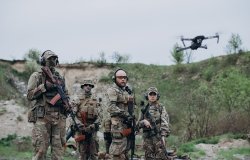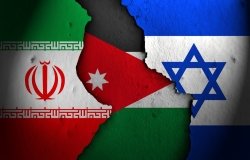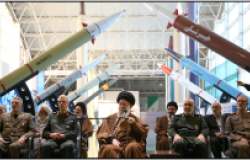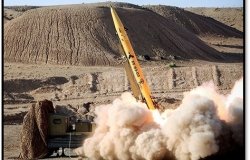Security Issues in Southeastern Europe
Radovan Vukadinovic, Professor of International Political Relations and Director of the Graduate Program in International Relations, University of Zagreb, Croatia, and Chairman of the Croatian Atlantic Council
Overview
Summary of the East European Studies discussion with Radovan Vukadinovic, Professor of International Political Relations, Department of Political Sciences, University of Zagreb, Croatia, and Chairman of the Croatian Atlantic Council.
The situation in Southeastern Europe has improved much in recent years, with regional and bilateral cooperation gradually increasing. Despite this progress, however, the potential for instability in the region remains. Professor Vukadinovic believes that in order to guarantee future peace and stability, international peacekeeping missions must remain in most of the hotspots of the region (including Bosnia, Kosovo and Macedonia) for several generations or at least sixty years. Furthermore, a U.S. presence, even if only a small number of troops, is essential for success.
Two areas of potential instability are Bosnia-Herzegovina (BiH) and what is left of Yugoslavia. He expressed concern that the nationalists retain significant influence in BiH and that the country still has numerous displaced refugees. In Yugoslavia, Vojivodina is seeking economic autonomy, the Sanjak region is seeking either autonomy or to be integrated into BiH, while Kosovo remains volatile and the Kosovar Albanians demand independence. But, Professor Vukodinovic noted that Kosovo still has no support from any European nation for outright independence. All of these unresolved issues illustrate the importance of continued involvement from the international community.
According to Professor Vukadinovic, Croatia has made significant strides and is now a stable actor which can make a positive contribution to regional security. Its efforts have been recognized and applauded by the international community, particularly with respect to Croatia's change in foreign policy positions and willingness to cooperate with the war crimes tribunal in the Hague. Croatia enjoys good relations with NATO and has proved to be a reliable partner in supporting the peacekeeping mission in Bosnia.
The critical precondition for sustainable, lasting peace in the region, according to Professor Vukadinovic, is that the international community continue to play a key role in ensuring stability in the region for many years to come and that it come to terms with a long-term commitment. In addition to providing peacekeeping troops, the international community will need to decide upon a united policy and general strategy for the region and use a variety of instruments, including economic assistance and development as embodied in the EU-led Stability Pact for Southeastern Europe, to facilitate further improvements in regional security.
Hosted By

Global Europe Program
The Global Europe Program is focused on Europe’s capabilities, and how it engages on critical global issues. We investigate European approaches to critical global issues. We examine Europe’s relations with Russia and Eurasia, China and the Indo-Pacific, the Middle East and Africa. Our initiatives include “Ukraine in Europe” – an examination of what it will take to make Ukraine’s European future a reality. But we also examine the role of NATO, the European Union and the OSCE, Europe’s energy security, transatlantic trade disputes, and challenges to democracy. The Global Europe Program’s staff, scholars-in-residence, and Global Fellows participate in seminars, policy study groups, and international conferences to provide analytical recommendations to policy makers and the media. Read more
Thank you for your interest in this event. Please send any feedback or questions to our Events staff.










